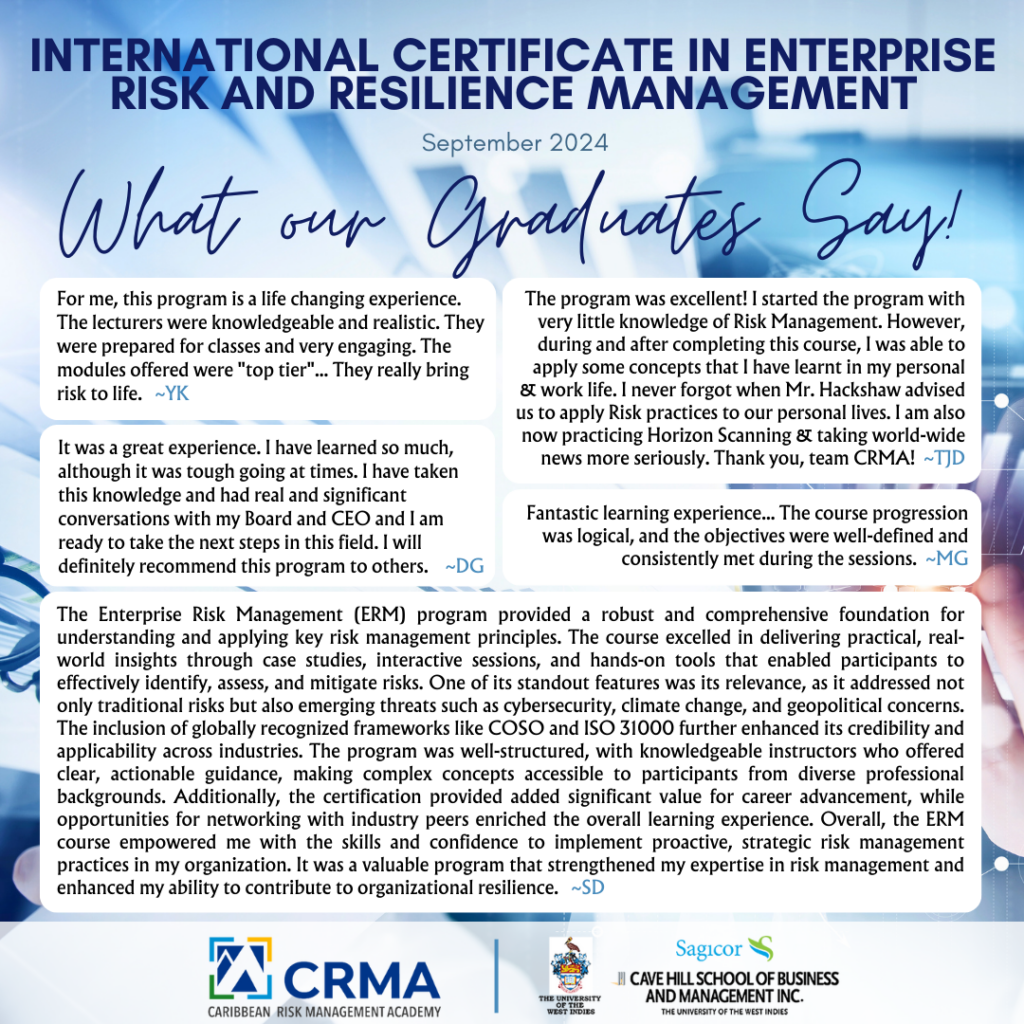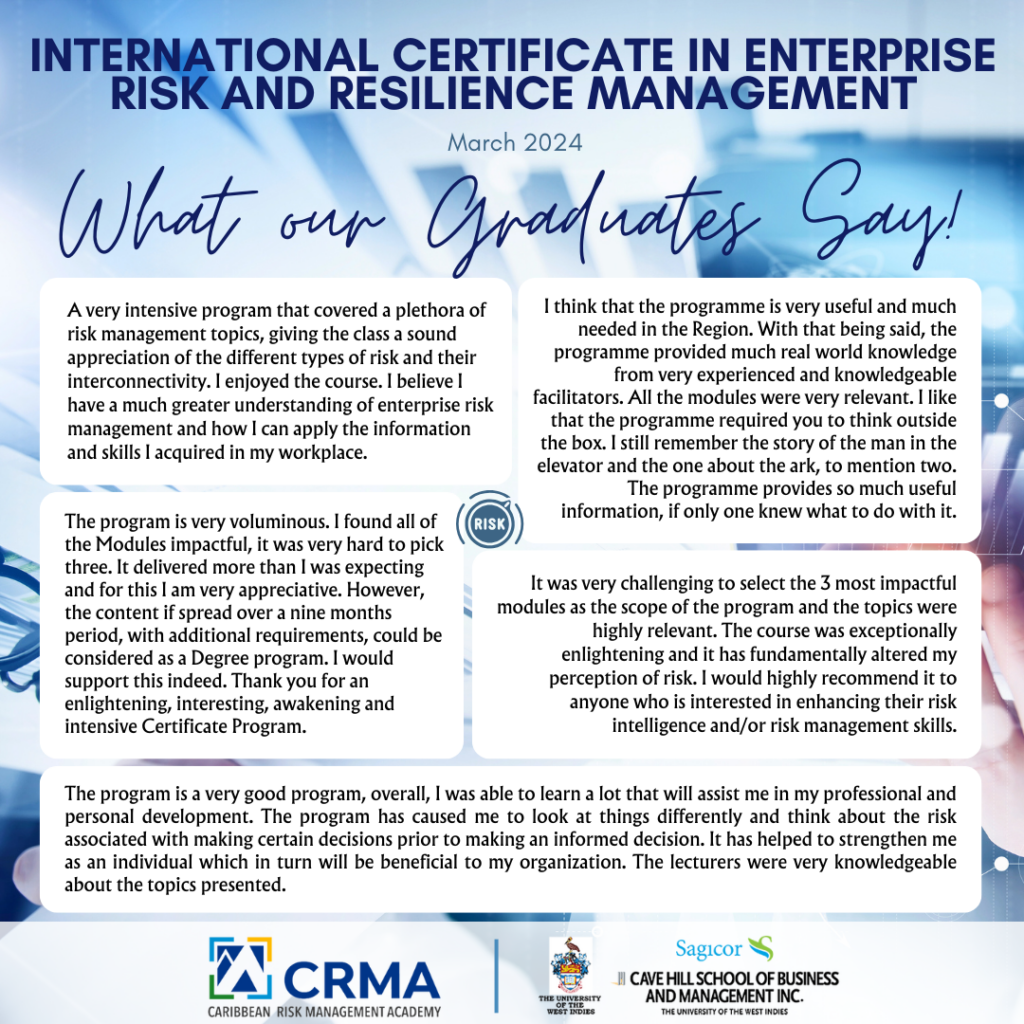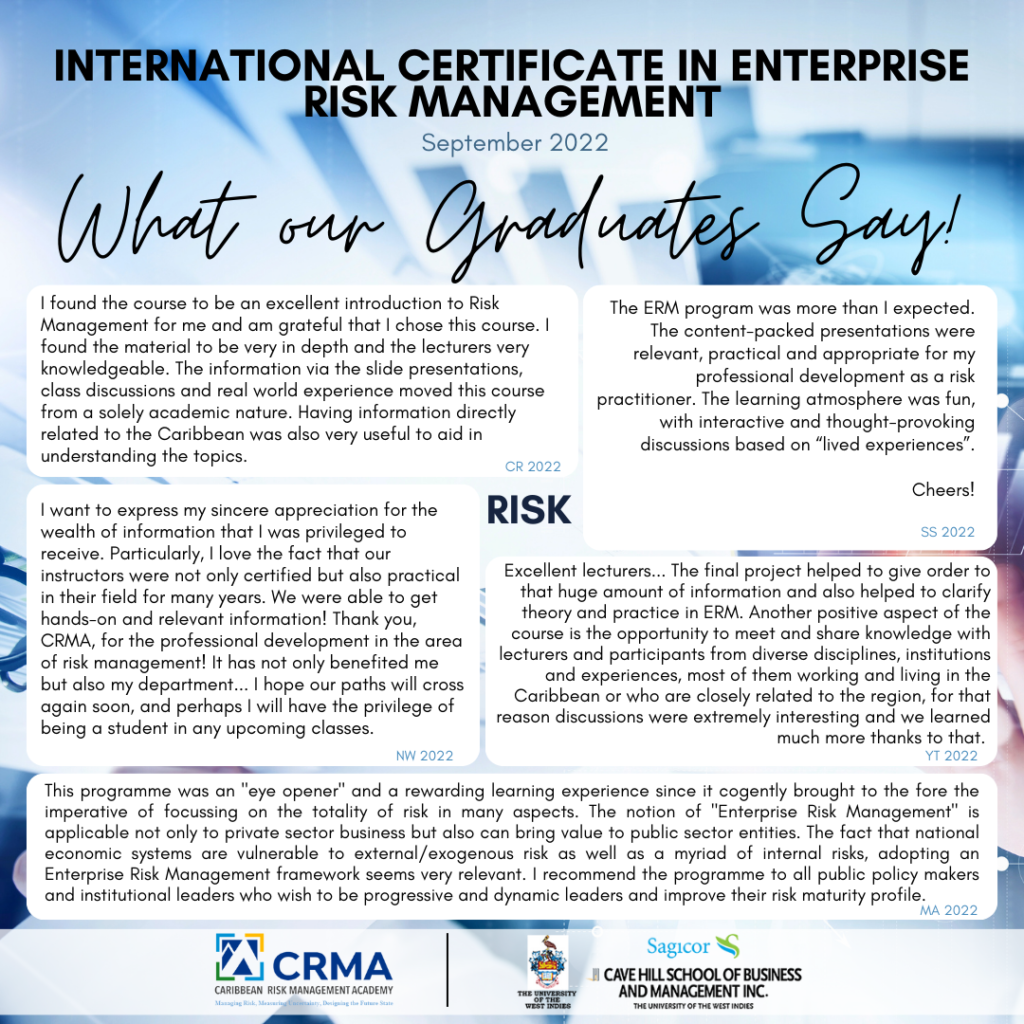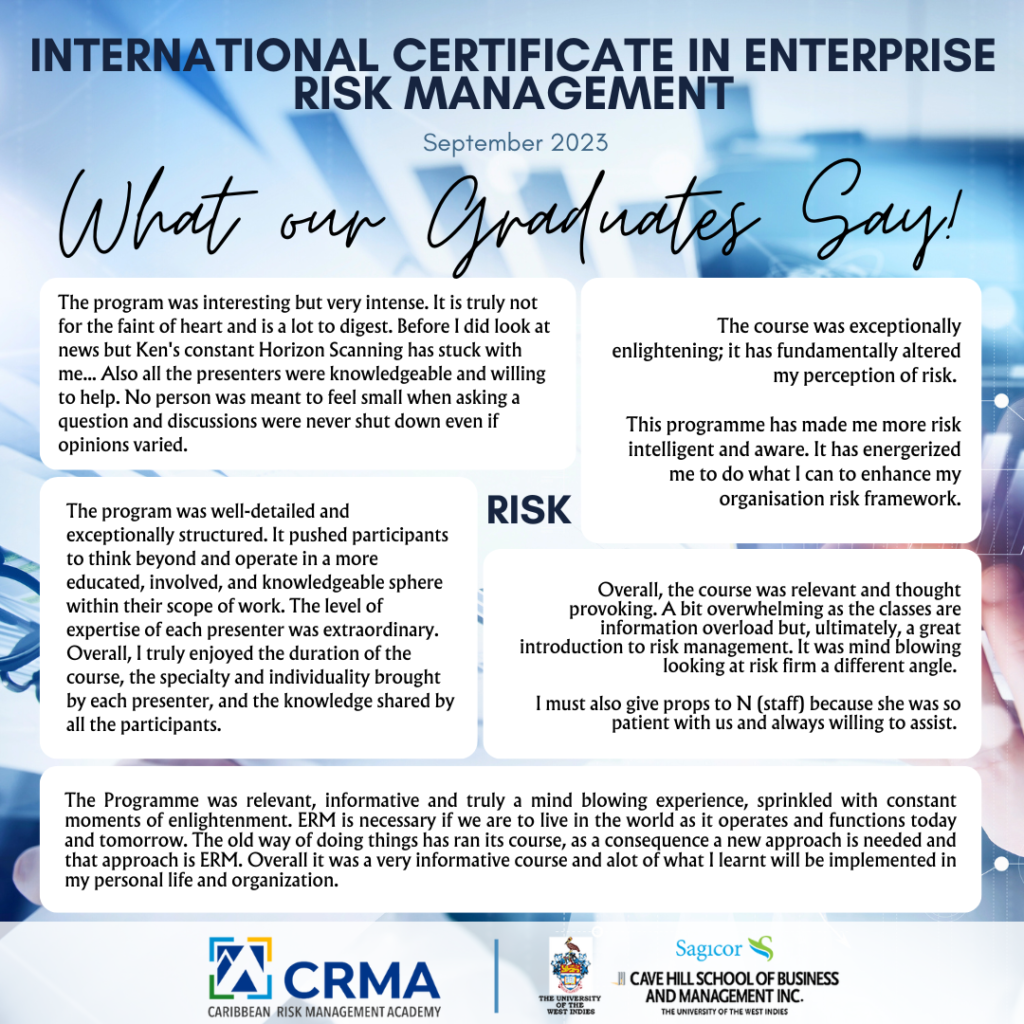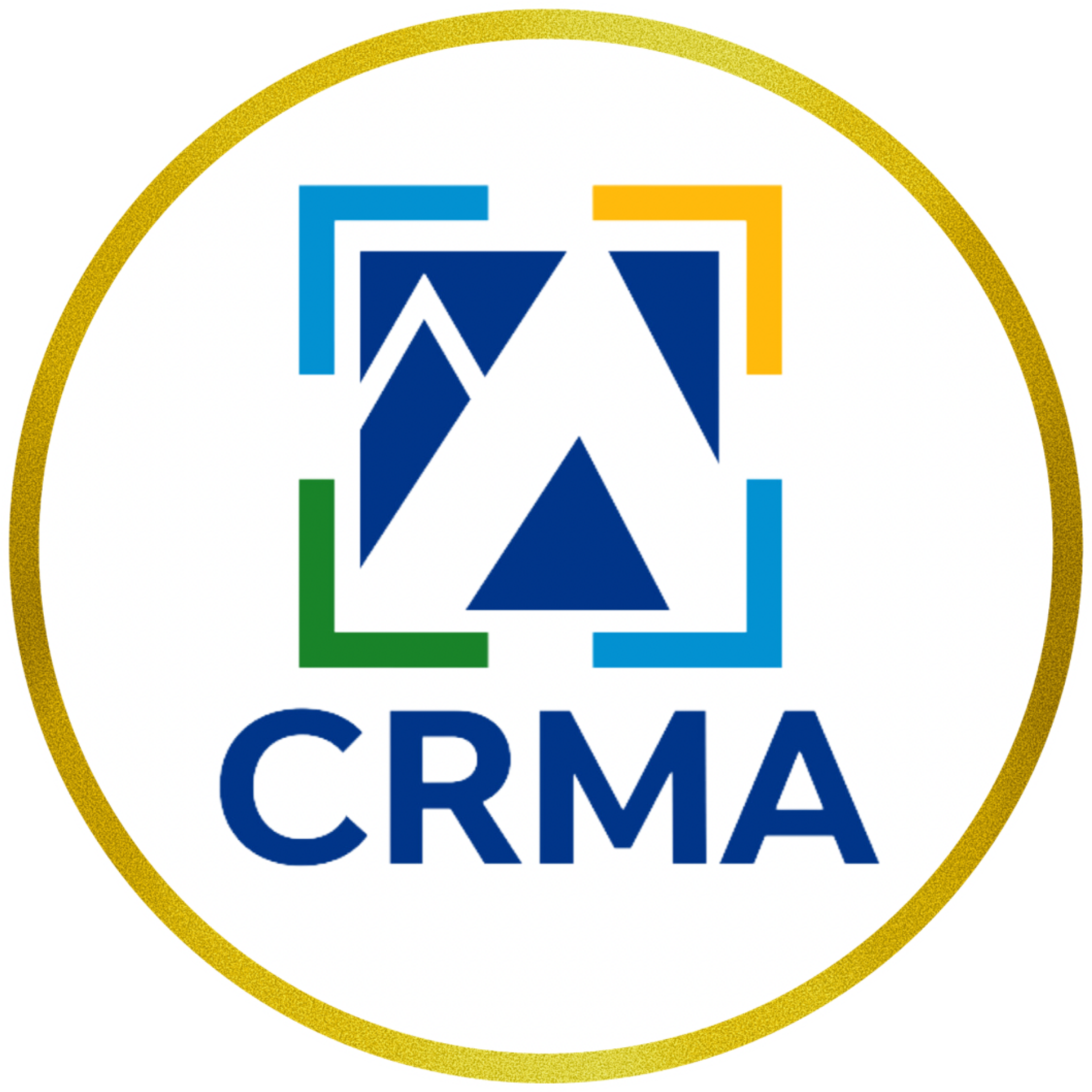Course Details
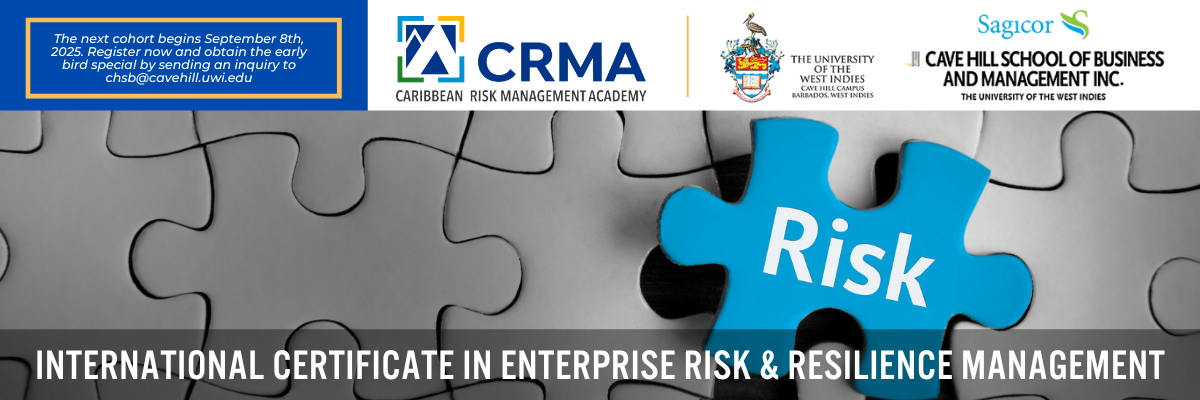
COURSE OVERVIEW
During economic downturns, and as countries globally continue to experience significant difficulties due to Covid-19, the complexity and velocity of risks continues to increase. It is therefore incumbent for organizations, its leaders and employees to become more risk intelligent, resilient, agile and more risk responsive. They need to understand change before it hits them, adapt at speed and ensure the institution does not tip over in the process. Leaders, additionally, must also ensure their employees become more risk educated.
LEARNING OUTCOMES
On successful completion of this certificate, participants will be able to:
- Assess the value and deployment of an Enterprise Risk Management framework
- Discuss the role of the Board and executives in risk management
- Apply risk-based decision making
- Use data and data analytics to drive decision making
- Recommend ways to enhance the risk culture of the organization
- Outline ways of leading through a crisis
- Assess the role and value of behavioural science in Enterprise Risk Management
- Implement an Enterprise Risk Management framework
- Conduct risk assessments and identify risk interconnectedness
- Manage technology risks as part of Enterprise Risk Management including cyber security risks
- Use Enterprise Risk Management to enhance internal controls
- Discuss the importance of business continuity planning and disaster preparedness.
- Integrate Enterprise Risk Management with strategy
- Assess the use of Environmental, Social and Governance (ESG) as part of Enterprise Risk Management
TOPICS
- Introduction to Enterprise Risk Management (ERM)
- Developing and Implementing an ERM Framework
- Risk Culture, Resilient Leadership and Governance
- Integrating ERM with Strategy
- Risk Assessment, Analysis and Evaluation
- Building a Natural Resilience to Disruption
- Crises, Resilience and Future Risk
- Behavioural Risk Management
- Introduction to Financial Risk Management
- Internal Audit and Risk
- Supply Chain and Vendor Risk Management
- Legal, Regulatory and Compliance Risk
- Managing Technology Risk as Part of ERM
- Artificial Intelligence (AI) in ERM
- Developing Resilience and Sustainability Frameworks
- ERM and The Global Business Environment
- Public Policy and Governance in ERM
- Risk Communication: More than just Crises Communication
- Business Continuity Management (BCM) and Disaster Risk Preparedness
- Pandemic and Biosecurity Risks: Risk Management and Protecting Borders
